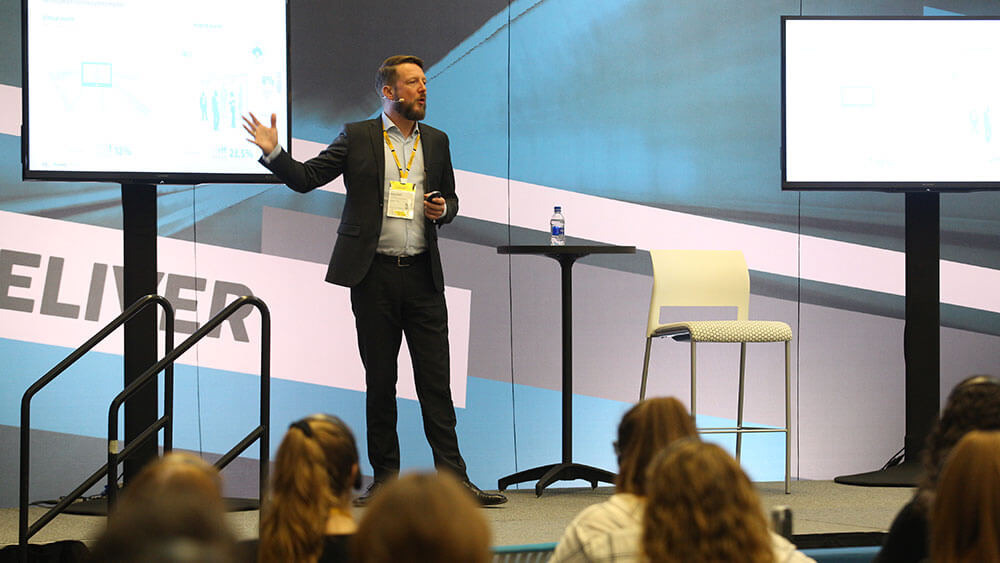
Matthias Schultze, GCB managing director, reveals results of the German Convention Bureau’s research, “Future Meeting Space.” (Jacob Slaton)
Three key strategies — adding surprising or disruptive change elements, facilitating effective knowledge transfer, and catering to different attendee needs — create memorable events. Those are among the findings of phase two of “Future Meeting Space,” a research project conducted by the German Convention Bureau (GCB) and funded by the PCMA Foundation. The results were presented at a Jan. 8 Convening Leaders session, “Examining User Experience to Create Events That Engage Your Audience.”
The research, led by European research organization the Fraunhofer Society, the GCB, and European Association of Event Centres (EVVC), was based on the responses of an online survey conducted between September 2017 and June 2018. As a result of the feedback, six event attendee types were identified based on different degrees of tech-savviness, communication styles, career levels, age, and gender. The types offer a checklist of sorts for event professionals to meet the needs of the range of participants at their events.
“The study has identified realistic attendee types as they currently exist. It also highlights the most relevant success factors and reviewed some common assumptions about the effects of certain factors,” Stefan Rief, Ph.D., who heads the research unit for organizational development and work design at Fraunhofer IAO, said in a press release.
Matthias Schultze, GCB managing director, who spoke at Tuesday’s session, acknowledged that creating “the right meeting is a very complex task,” and that the industry is changing quickly. Case in point: “Every fourth meeting,” he said, “is a hybrid meeting.”
The research will help event organizers “identify and focus on factors that are the most relevant ones for their target group,” Schultze said. For example, it might be necessary to provide dedicated support for introverted or less tech-savvy attendees.
Building off the results of the second phase, the planned third “Future Meeting Space” research will look at the primary role events play as trendsetters for business and science. “A shift in mindset,” Schultze said, “is needed to fulfill tomorrow’s objectives.”
Convene content partner Ascent wrote this story.
